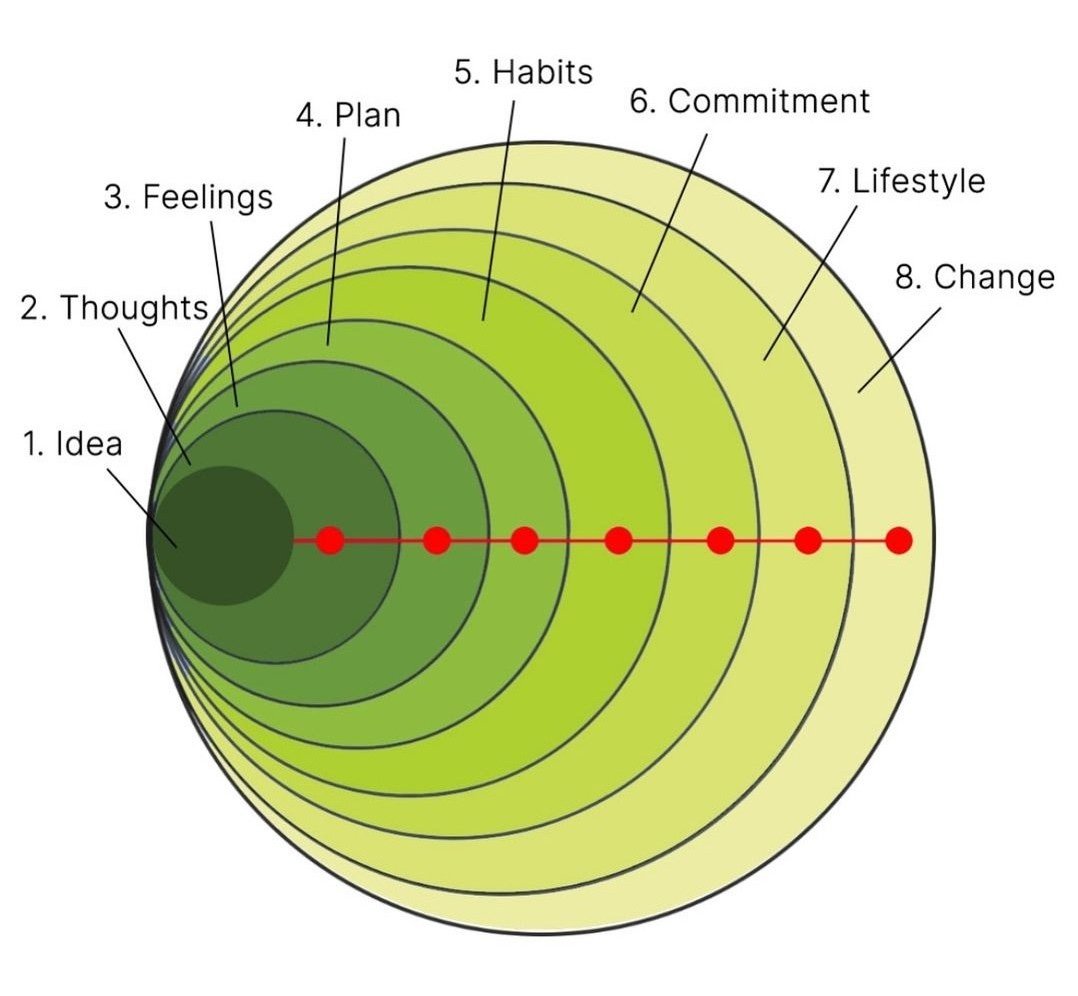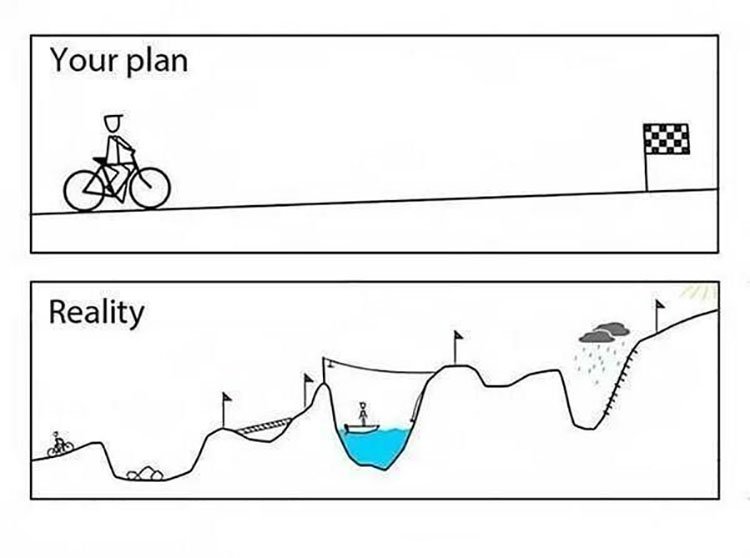If someone watched you for a week, would they believe you are serious about your goals? Would they see discipline, effort and consistency? Or would they see distractions, procrastination, and wasted time? You don’t have to tell people what you want, as how you spend your days already does. Contact me via email for a confidential one-to-one meeting.
Choosing meaning with intention
Leaders are constantly required to interpret complex, ambiguous situations. Whether it's a missed target, a team conflict, or a career crossroads, the story you tell yourself about what’s happening will either empower you or hold you back.
As a coach, I help leaders explore the stories they are living by:
· Is this challenge a threat, or a signal for growth?
· Is that tension in your team a problem, or an invitation to lead differently?
· Is your current frustration a dead-end, or a turning point?
Reframing isn’t about denial or false optimism. It’s about choosing meaning with intention. It’s about emotional mastery. It’s about creating space to respond rather than react. And I think it’s one of the most powerful tools in a leader’s toolkit. If you are at a place where your old stories are not serving you, maybe it’s time to rewrite them, with support from a coach. Contact me via email to book a free 30 minute discovery call.
What are you capable of?
True leadership isn’t about micromanaging every detail, I think it’s about setting a clear vision and empowering others to find their own way forward. When you tell people exactly how to do something, you limit their creativity, their problem-solving abilities, and ultimately, their growth. But when you define the goal, provide the necessary resources, and step back, you create space for innovation and ownership.
Great leaders understand that trust is a catalyst for excellence. By relinquishing control over the "how," you invite people to take ownership of the process. You give them permission to experiment, fail, learn, and ultimately, deliver results that may far exceed your expectations. So, resist the urge to dictate every step, instead, inspire with clarity, support with confidence, and then stand back. You may just be amazed by what people can achieve when given the freedom to rise to the challenge.
How is change created?
Key questions for change:
What specific change are we trying to make?
Who are we aiming to influence?
Given our agreed-upon constraints and goals, is there a better path forward to reach our destination?
To proceed, we need clarity on the following:
Constraints:
What are the limitations or boundaries we’re operating within?Objectives:
What are the precise goals we are working toward?Target Audience:
Who are we trying to affect or change?
Without alignment on these key points, productive conversation becomes difficult. If we’re not on the same page, we risk revealing that we’re metaphorically on different journeys (or buses), heading in different directions. Contact me via email for a confidential conversation about your journey.
A fear setting exercise
Tim Ferris c/o YouTube
Fear-setting is an interesting approach to goal setting as it focuses on identifying and addressing our fears rather than just setting goals based on aspirations. Try this fear-setting exercise to set your fears free:
- What are you most scared of?
- What are the worst things that may happen?
I think by looking at what we fear the most and envisioning worst-case scenarios, we can better understand the potential risks and obstacles that may come our way. This exercise can help us to prepare mentally and emotionally for challenges, and even devise strategies to mitigate those risks. In this way we can gain clarity on what truly matters to us and what we need to do to overcome obstacles.
““Marketing is the place that understands and anticipates what people need and desire.””
A key question
Yesterday, I was asked a fantastic question: What change are you seeking to make?
I answered: This is a key question when working with clients to help them create personal development plans. If you are going to show up in person in real time, whether at an event or even making a presentation, you are performing. And I think our goal is not only to deliver information but also to deliver emotion with the purpose to cause a change in the people who are listening to you.
““You can’t build a reputation on what you are going to do, but you can build a solid reputation on doing what you say you will do.””
Be extremely clear
Write down your goals, the more detailed the better and be flexible about the process of achieving them. Always be open and remain sensitive to the possibility of serendipitous events and I think, one should also be open to inspiration and inputs from other people. The best leaders I have encountered share some of the same characteristics, they are good listeners, they ask lots of questions and they take in all the information possible before making up their minds or concluding. When they make a mistake, these leaders also admit failure and cut their losses quickly so that they can move onto bigger and better things.
Smooth paths are seldom seen
The key to success is to get clear on what you want, create a pragmatic plan to get it, and then execute daily on that plan without getting distracted. Goal setting and planning gives you the ability to put your blinders on, not look at what others are doing, stay in your lane, and keep executing towards your goals. Contact me via e-mail and let’s build an action plan to meet your goals together as the path between strategy and execution is seldom without challenges.
Athletes of the business world
In the future we will need people who can connect and communicate. And we will need people to transfer confidence, emotion, and a positive view of the world. We don’t need people to send e-mails as anyone including robots can send e-mails to promote products and services. I think salespersons are the athletes of the business world as they intrinsically enjoy competition. Successful salespeople are goal-oriented and self-motivated and these are also defining qualities of high-performing athletes.
Act now
Strategic planning is the ongoing organisational process of using available knowledge to document a business's intended direction. This process is used to prioritise efforts, effectively allocate resources, align shareholders and employees, and ensure organisational goals are backed by data and sound reasoning. Goal setting is a purposeful and explicit process that starts with identifying a new objective, skill, or project you want to achieve. I think it’s important that you make a plan for achieving it, and you work to complete your goals. I am a skilled developer in strategic planning from conception to implementation. Contact me via e-mail for executive coaching and team assessments, as well as organisational assessments and strategic planning.
Let's see what you've got
The further away a goal is in the future the less motivation it brings to today, they will have very little power today to govern our actions. If you don’t have a definition, at least get a direction by asking yourself the following questions:
1. Why is the goal important to you?
2. What will accomplishing that goal do for your life?
3. What will happen if you do not accomplish this goal?
The power of goal setting
According to psychological research, written goals are much more powerful than unwritten ones. I think by writing down goals we start to anticipate how we will achieve those goals and start to build our way power as our brains just does not have enough working memory to do all that without committing the goals to paper.
There are three types of goals: process goals, performance goals and outcome goals. As a former athlete, I think process goals are the most valuable since practising reaching a process goal is demanding and if you fail, it will not be as public as failing to achieve an outcome goal.
“Plans are irrelevant; planning is everything. ”













